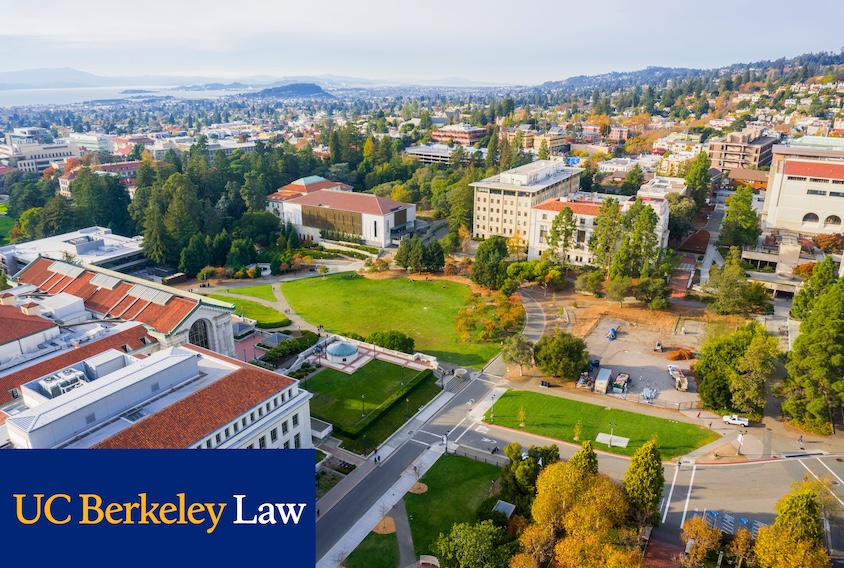On April 24, 2025—the 110th anniversary of the Armenian Genocide—the Human Rights Center at UC Berkeley Law canceled the screening of My Sweet Land, a powerful and internationally acclaimed documentary that follows the story of Vrej, an 11-year-old Armenian boy from Artsakh (Nagorno-Karabakh), as he navigates life in the aftermath of war and forced displacement by Azerbaijan. The decision came after direct political pressure from the Azerbaijani Consulate in Los Angeles and coordinated lobbying by Azerbaijani students at Berkeley, reports Zartonk Media.
The film, directed by Armenian-Jordanian filmmaker Sareen Hairabedian, portrays the trauma of displacement and survival through the eyes of a child. It has received widespread praise and recognition, including awards at the Amman International Film Festival, screenings at Sheffield DocFest and DOC NYC, and was Jordan’s official submission to the 97th Academy Awards—before being withdrawn due to diplomatic pressure from Azerbaijan.
My Sweet Land is not a political manifesto—it’s a deeply human portrait of survival, resilience, and memory. And yet, despite its message of truth and humanity, it was censored at an American university.
At UC Berkeley—a university that claims to champion human rights and academic freedom—this powerful and timely film was shut down.
Azerbaijan’s Consul in Los Angeles, Gasim Shirinli, sent a formal letter to several departments at Berkeley—including the Human Rights Center—urging the university to cancel the screening. In the email, he accused the film of reflecting “a radical ideological stance held by certain Armenian groups” and claimed it failed to “promote mutual understanding or reconciliation.” He described the project as “contrary to the spirit of law and acceptable standards.”
These claims are not only false—they are part of Azerbaijan’s broader campaign of denial, disinformation, and ethnic erasure. What’s even more concerning is that the Human Rights Center at Berkeley Law complied.
An associate director at the university’s Human Rights Center informed Armenian student organizers on April 23 that the event was being postponed due to “staffing shortages” and “potential protest.” Internal emails cited the Azerbaijani Consulate’s outreach and concerns about confrontational protestors as reasons for the delay. But make no mistake—this was not about logistics. This was political censorship, carried out under pressure from a foreign government.
In the wake of the cancellation, the Berkeley Armenian Students Association (Cal ASA) released a powerful statement condemning the university’s actions and calling the decision what it was: a deliberate silencing of Armenian voices.
The statement reads in part:
“Let us be unequivocal: this was not a matter of safety. This was a matter of censorship… To make matters even more painful, the cancellation occurred on April 24th—Armenian Genocide Remembrance Day… That on this day, they tried to silence our voice once again, is as symbolic as it is heartbreaking… No institution that claims to champion human rights and academic freedom should ever succumb to a foreign government’s attempt to suppress survivor testimony and historical record… We will not be silenced.”
You can read the full statement in its entirety below.
According to an internal incident report obtained by Zartonk Media, the cancellation was driven not only by the Azerbaijani Consulate, but also by a group of Azerbaijani students who lobbied university staff to shut the event down. These same students later celebrated the cancellation publicly, framing it as a political victory.
What should have been a respectful, moving, and educational screening was instead turned into a tool of intimidation and suppression. UC Berkeley, by choosing inaction, became complicit in silencing Armenian students on one of the most important days of remembrance in the Armenian calendar.
This incident raises urgent questions about academic freedom, the integrity of American institutions, and how easily foreign regimes can exert influence on U.S. campuses. If a foreign dictatorship can dictate which stories get told at UC Berkeley—on April 24, no less—what happens next?
Armenian students are now filing formal discrimination complaints and calling for:
- A full investigation into the cancellation,
- A rescheduling of the event free from external interference,
- A public affirmation of Berkeley’s commitment to academic freedom, and
- A university-wide review of policies to prevent future foreign lobbying from silencing students.
Zartonk Media stands in full solidarity with the Armenian students at Berkeley and the team behind My Sweet Land. We will continue to shine a light where others yield to darkness.
We will not be silenced.


